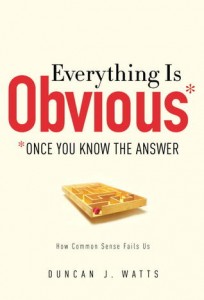 It is exciting to see widening recognition that brand survival depends on improving the lives of customers, not merely “pushing product” as they are accustomed to doing. In the latest example, Business Should Focus on Sociality, Not Social “Media”, Umair Haque offered a case for the end of social media and the disruption of many Industrial Economy structures, namely the social contract.
It is exciting to see widening recognition that brand survival depends on improving the lives of customers, not merely “pushing product” as they are accustomed to doing. In the latest example, Business Should Focus on Sociality, Not Social “Media”, Umair Haque offered a case for the end of social media and the disruption of many Industrial Economy structures, namely the social contract.
As regular readers well know, I agree with Haque’s key thesis, that brands need to jettison their legacy focus on products/services in favor of dedicating themselves to helping users achieve outcomes while using their products. I have often written that humans and their organizations will have to adopt a more collaborative and responsible attitude and approach in general. However, I don’t agree with him that there’s only one way to do “sociality” as he implies by his assertion that brands have an “existential responsibility” to “the art of living.” Here I’ll explain the differences, which will help brand stewards understand the nuances of brands’ disruption.
[…]

 Book Review: Everything Is Obvious* Once You Know the Answer/Duncan J. Watts
Book Review: Everything Is Obvious* Once You Know the Answer/Duncan J. Watts  I covered the Federal Reserve Bank of Chicago Economic Forecast last week, where all speakers issued this refrain: “More of the same.” Key economic indicators have been stuck in neutral—the proverbial “sideways” movement—so the consensus in the room was one of faint frustration tempered by gratitude. Everyone had lived through worse.
I covered the Federal Reserve Bank of Chicago Economic Forecast last week, where all speakers issued this refrain: “More of the same.” Key economic indicators have been stuck in neutral—the proverbial “sideways” movement—so the consensus in the room was one of faint frustration tempered by gratitude. Everyone had lived through worse.